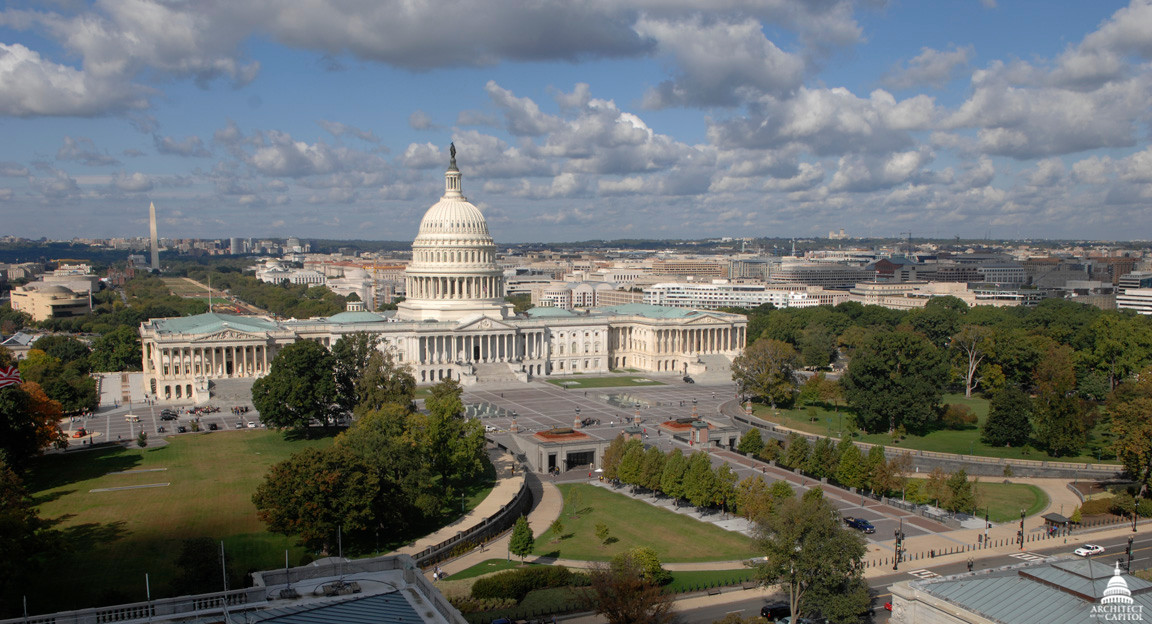Overbuilding Gets Rural Accent at Hill Hearing

The smarter way to stay on top of broadcasting and cable industry. Sign up below
You are now subscribed
Your newsletter sign-up was successful
The issue of overbuilding got a lot of attention in a Senate Communications Subcommittee hearing Tuesday (March 12) as one of "The Impact[s] of Broadband Investments in Rural America."
Overbuilding existing commercial service with government money has long been one of ISPs biggest issues with how government broadband subsidies are administered.
"We recognize that government help may be needed to bring broadband to areas that are beyond the reach of private risk capital," said Justin Forde, senior director of government relations, for Midcontinent Communications. "In areas where it is not financially viable to build–because they are too difficult to reach, geographically remote, or are otherwise very hard to serve–broadband deployment grants can alter the financial calculation, making serving an area possible. It is critical, however, that such help and government resources used for this purpose are directed to bring service to areas that are truly unserved."
Related: Sen Thune Schedules Broadband Hearing
"It is normal in competitive markets for rivals to duplicate each other’s infrastructure," said Mark Jamison, visiting scholar at the American Enterprise Institute. But that is only between commercial competitors using their own risk capital. "This duplication of infrastructure can be wasteful at best, and perhaps even destructive, when the government is subsidizing one of the providers," he added. "This is why it is important that subsidies be provided only in places where there is no service and where service would not be commercially viable absent the subsidy.
A related issue is broadband mapping and data. It follows that if the government can't accurately identify where service is or isn't—a knock on the FCC's broadband mapping—it can't effectively prevent overbuilding, or underbuilding in the case of carriers overstating where service already is, and so where subsidies aren't made available for broadband buildouts.
Related: NTIA Partners with States on Broadband Maps
The smarter way to stay on top of broadcasting and cable industry. Sign up below
Such mapping deficiencies can impede the rural broadband buildouts that are an avowed priority for the Trump Administration.
Subcommittee Chairman John Thune (R-S.D.) said with both the USDA and FCC providing broadband funding, he could see how the money could be "inadvertently used" to overbuild. He also said that simply looking at what is currently deployed is not enough to prevent overbuilding since some projects roll out over several years.
He asked whether Congress should require agencies to coordinate to avoid "wasteful overbuilding."
Witness Carol Mattey, principal of Mattey Consulting, said that agencies need to share real information, including maps—preferably accurate ones—so they could see where those future projects are anticipated and avoid that overbuilding.
Forde said there were many examples throughout the Midwest where they had been overbuilt with federal dollars, including where even though MidContinent was providing 1 gig service in an area, a competitor was able to get a USDA loan, Universal Service Funds and Connect America funds, to overbuild them.
Forde said he thought a coordination requirement would "absolutely" help prevent such overbuilding and was necessary. He said not preventing such overbuilding will mean some areas won't be getting service at all.
Denny Law, CEO of Golden West, said he thought there should be both coordination and some level of "nonduplicity" among programs. Ideally there should be no duplicity whatsoever, he said, but that there were funds that were expended for deployment and funds for sustainability.
The argument by those who say some overbuilding is unavoidable is that it takes a sufficient customer base to support continuing to provide built-out service to remote areas with relatively few customers.
Asked by Sen. Amy Klobuchar (D-Minn.) why accurate maps were so important to preventing overbuilding, Jamison said that it doesn't make economic sense to pay two people to do the same thing. He said states and localities can help provide data for more accurate maps. Forde said he also welcomed input from the public on where service was and wasn't.
Contributing editor John Eggerton has been an editor and/or writer on media regulation, legislation and policy for over four decades, including covering the FCC, FTC, Congress, the major media trade associations, and the federal courts. In addition to Multichannel News and Broadcasting + Cable, his work has appeared in Radio World, TV Technology, TV Fax, This Week in Consumer Electronics, Variety and the Encyclopedia Britannica.

